The Tragedy of Black Adam’s Family History
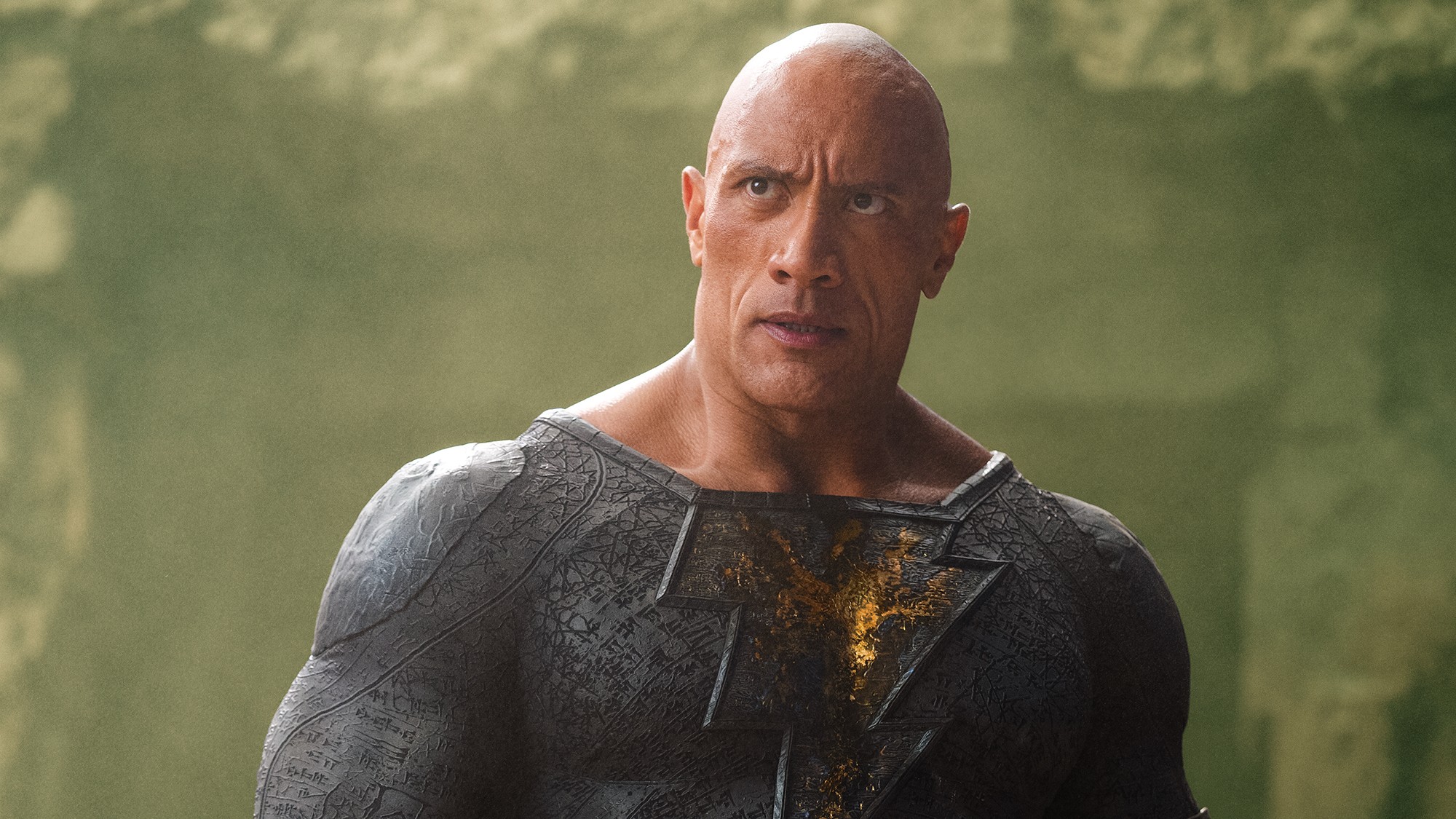
The long journey of Black Adam to the big screen finally completed this year. Originally intended as the villain of Shazam! in earlier scripts for that DC movie, star and executive producer Dwayne Johnson asked WB to separate the two characters and grant them their own individual films. It’s a choice that over the years has seemed strange to comic fans who only knew Black Adam as Shazam’s opposite, a former magical champion who was corrupted by his powers before eventually becoming a DC antihero. But in observing the actual history of Black Adam, it’s a creative decision that makes sense.
Over the past 20 years, Black Adam has been radically transformed and shifted into a more complicated character and figure in the DC landscape rather than just “Shazam villain,” with a whole cast of colorful characters, and even his own super-family that have added to his mythology, just like Batman and Superman. But what’s fascinating is the long journey it took to get there.
Superhero families as an idea really began with Fawcett Comics, the original home and publisher of the Shazam world of characters in the 1940s and ‘50s, before DC eventually acquired them. It makes sense when you think about it. After all, the fundamental basic idea behind Shazam is a lone orphan child who has lost his family and now has no one. With that as a starting point, you inevitably end up assembling a surrogate family of characters around him. Power, after all, is meant to be shared, as the core ethos of Shazam reminds us.
And so you have Billy’s equal (and lost sister) in Mary Marvel, or Captain Marvel Jr. as his good pal. It’s a bunch of struggling kids who are forged into a family and go on wild, imaginative, almost fairy-tale adventures. They are often joined on their journeys by super-animal allies like Tawky Tawny, a well-dressed and polite anthropomorphic tiger, or the Shazam-powered Hoppy the Marvel Bunny. Older figures like Uncle Dudley, who pretend to have Shazam powers in order to accompany them on their adventures, occasionally join the fun, the whole setup reflecting an ideal of family as filtered through the lens of childhood.
Writer Otto Binder was particularly crucial in all this, working alongside legendary Shazam co-creator C.C Beck. Binder and Beck would, in trying to firmly cement this superfamily, end up creating Black Adam in the first issue of a comic that was dedicated to the entire Shazam family.
The existence of Black Adam, and his history as a corrupted former champion of Shazam, helped define the Shazam and provided a counterpoint so they could prove their heroic nature. However, he was destined (for a time) to be a one-off idea and villain, never used again by anyone at Fawcett.
But soon enough, Fawcett was forced to stop publishing Shazam after a number of legal disputes with DC Comics, who felt threatened by the popularity of Fawcett’s flagship heroes, since Shazam was consistently outselling Superman. As Fawcett fell, writers like Otto Binder, who had done so much defining work with the world of Shazam, would eventually go on to work for DC, specifically to pen Superman comics. In so doing, Binder’s work would not only re-shape the Man of Steel, but his mythology as well.
In fact, much of modern Superman lore as we now know it exists due to Binder. The legendary writer would port over much of what made those Fawcett comics so exciting and thrilling, tweaking them as needed for the world of Superman. The concepts that informed Mary Marvel became Supergirl. The character of Jimmy Olsen, who was originally created for The Adventures of Superman radio show, was reworked as a human equivalent of Shazam’s well-dressed Tiger-pal Tawky Tawny, thus creating the “Superman’s pal” we know and love today. Superman would even be given super-pets, like the iconic Krypto the Super-Dog. And despite these similarities, Binder tried to make the framework and idea of a superfamily feel closer to the more adult neuroses and concerns of Clark Kent, rather than the youthful Billy Batson.
Even Batman got in on the “superfamily” action. Fitting, given that his tale also begins as one of an orphaned boy, motivated by familial heartache. Of course, with Batman as explicitly an older paternal figure taking care of young Robin, once again the family conceit was tweaked to fit the adult Batman. Where Superman was a lone bachelor, Batman was a single dad with a ward to care for. And in the pages of Batman and Detective Comics, both father and son would be paired up with a Batwoman and Batgirl respectively to present something resembling an all-American nuclear family. With Alfred and Gordon serving as grandfatherly or uncle figures, not unlike the role of good ol’ Uncle Dudley in the golden age Shazam comics, and Ace the Bat-Hound joining the party, Bruce Wayne finally assembled a significant surrogate family.
Since then, superfamilies have spread everywhere, and seem to cover every superhero world, from the Flash to Ant-Man, and many more. But it all began with those Fawcett comics of the 1950s, and that’s the root that writer Geoff Johns would return to in the 2000s when he revamped Black Adam in the pages of JSA. Gone was the villain who’d been poisoned by power, replaced by a more complicated figure with a new and tragic origin rooted in the loss of his family. Given the character was literally created and defined against the very idea of the first superfamily, it made sense. Soon after, Johns, alongside creative collaborators such as Grant Morrison, Greg Rucka, Mark Waid, Keith Giffen, and other artists, would help firmly establish a whole Black Adam Family in the seminal series 52, which constructed a Black Adam family in direct contrast to the Shazam and Superman families, a legacy which is now continuing in the hands of hands of legendary writer and Black Panther icon Christopher Priest, who has added and expanded the world and family in Black Adam’s life, and now leans much more heavily into the Batman and Bat-Family contrasts and parallels.
If you’re reading or watching Black Adam for the first time, here’s a guide to each member of his superhero family:
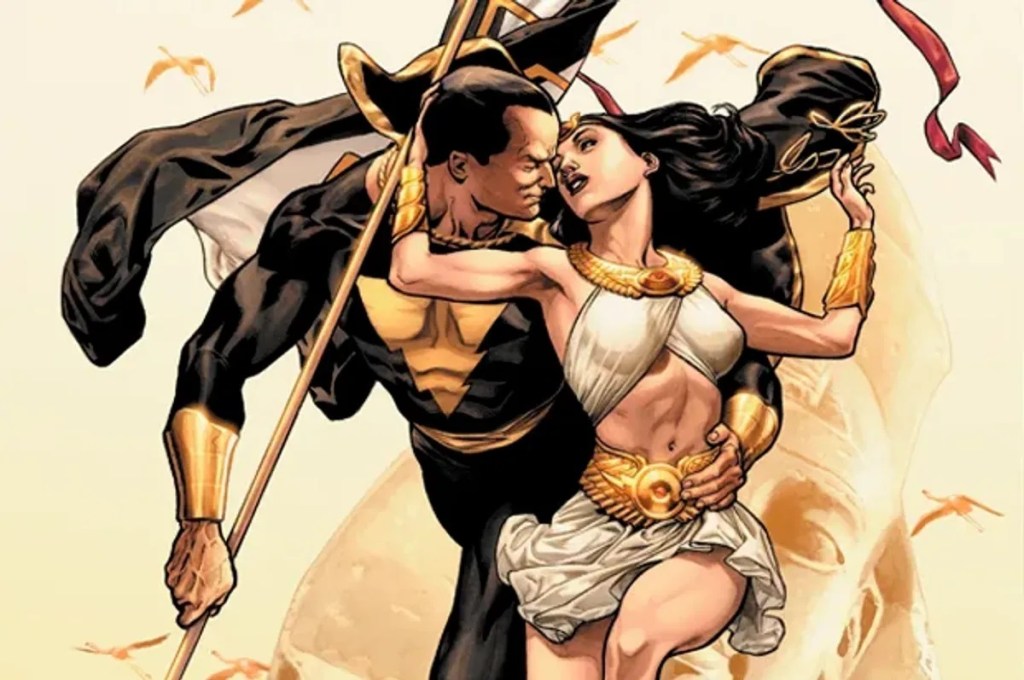 Isis/Adrianna Tomaz
Isis/Adrianna Tomaz
Before Linda Carter’s Wonder Woman ever hit the TV screens, The Secrets of Isis was the first weekly American superhero show starring a female lead. She shared a programming block with Shazam! in the Shazam!/Isis Power Hour back in the 70’s. So of course when the time came to introduce a new figure into Shazam mythology, a DC revamp of Isis was inevitable.
Adrianna Tomaz (played by Sarah Shahi in the film) need only say “I am Isis!” whilst holding her Amulet of Isis to transform into her superhero self. Beginning as a refugee Adam liberates, she questions and challenges many of Adam’s ideas and assumptions, pulling him back from his mythic stature into the mortal realm. She ends up being a Lois Lane-esque figure in his strange life, the ultimate partner who’ll tell him what he needs to hear no matter what or how hard it is. A person committed to making the world better, Isis is the family member who most grounds Black Adam, who makes him better, and helps him be the ideal he hopes to embody.
Isis is every bit Adam’s equal, both in power and a strong, unrelenting view of the world, and it’s why they end up getting married, in a grand ceremony in Kahndaq. But of course, Adam is no Superman. His is not the story of a hero meant to inspire but a tragedy. So when all hell breaks loose and Isis dies in the apocalypse, it underlines a key truth about the Black Adam Family: There is never going to be a happy ending.
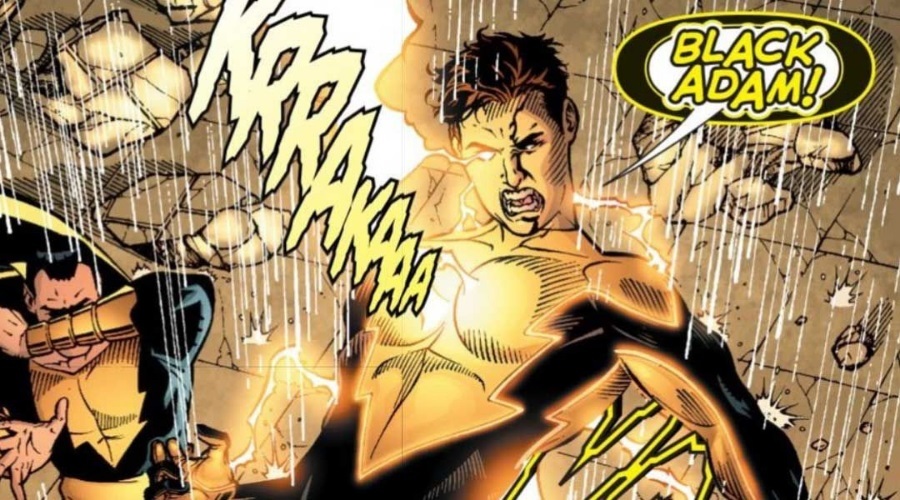 Osiris/Amon Tomaz
Osiris/Amon Tomaz
The younger brother of Adrianna/Isis, Amon Tomaz is a boy who after being kidnapped and tortured is left gravely injured. At which point, Black Adam shares his power. and upon uttering the words “Black Adam,” Amon transforms into the superpowered Osiris. The character is very much a clear contrasting riff on Captain Marvel Jr./Freddie Freeman, who also had to say the name of the family’s leading figure (“Captain Marvel!”) to transform into a teen superhero.
Amon is Adrianna’s son rather than sibling in the movie (where he’s played by Bodhi Sabongui), which tracks within the above analogies. In the comics, he passes away, much like his sister when the apocalypse comes to Kahndaq in the form of the Four Horsemen of the Apocalypse. His death symbolizes the death of the future, of possibility, of a different, more hopeful path for Black Adam.
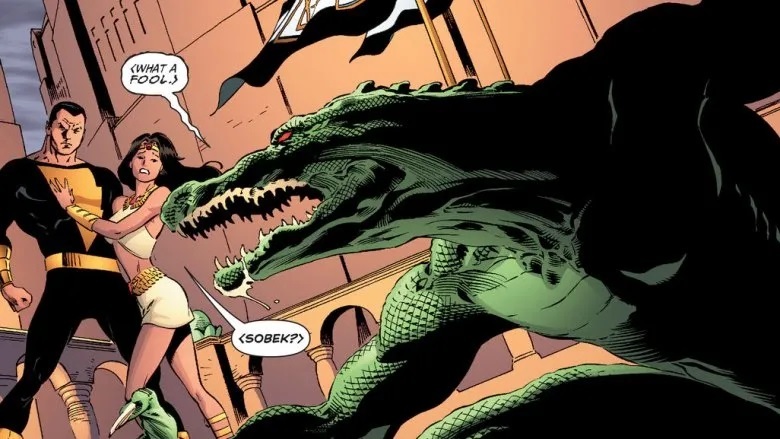 Sobek The Super-Crocodile
Sobek The Super-Crocodile
The Super-Animal Ally of the family! Sobek was introduced as a dark mirror of Tawky Tawny, the strange super best-pal of the squad. But what starts out as a seemingly fun (albeit violent) take on that classic super-animal idea quickly takes a shocking turn, as it’s revealed that Sobek is actually one of the Four Horsemen of the Apocalypse. It doesn’t end well for him, or those he encounters. And the takeaway here is clear. If a sweet little animal ally being revealed as a monstrous horrifying death-god avatar doesn’t say it all about Black Adam’s hope for true redemption, I don’t know what does.
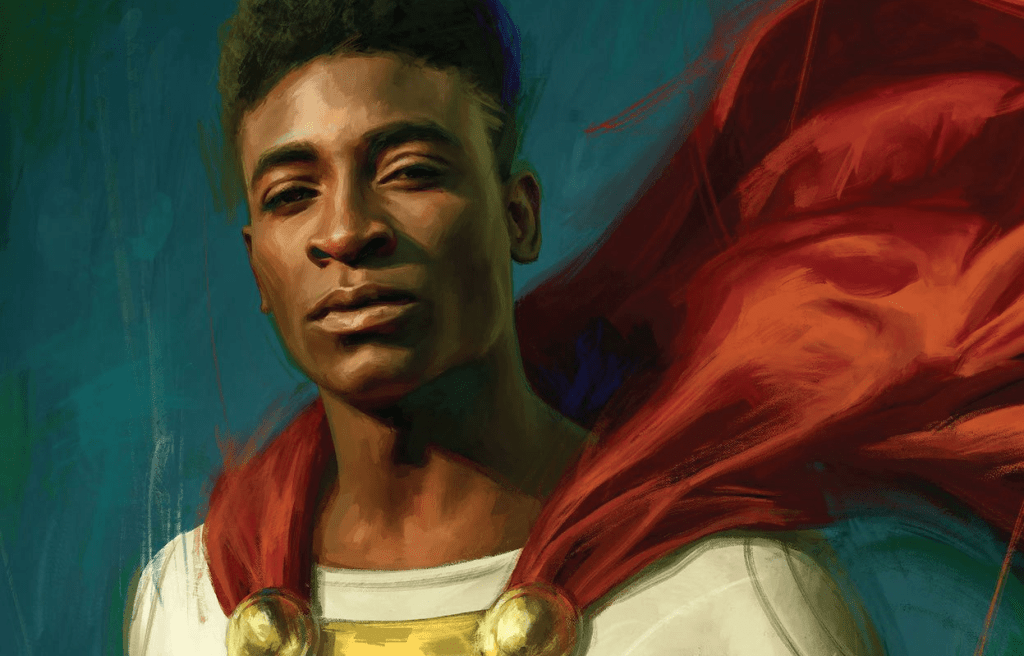 Malik White/Bolt
Malik White/Bolt
Malik White is a more recent creation. Legendary writer Christopher Priest has leaned into the dual nature of Black Adam, with Adam’s mortal persona of “Theo” being his Bruce Wayne, while “Black Adam” is his Batman mode. It’s in line with Priest’s spectacular Black Panther run, which by Priest’s own admission orbited Batman archetypes and figures. Since he felt he’d never be hired as a regular Batman writer, he put all his ideas into Panther.
Thus we’re introduced to people like Yigal Blaustein, or Shep as he likes to be called, a member of the United States Diplomatic Corps who’s meant to keep watch on Adam. The tension of a man whose job it is to report on Adam being his best friend is the kind of fun riff on a figure like Alfred or Jim Gordon that Priest leans into. Similarly, Chuck, a CIA operative who is also revealed to be Black Adam/Theo’s ex, operates in an almost Talia al Ghul space of a femme fatale figure. But more than a butler or a love interest, what does Batman need more than anything? A Robin.
And that’s where Malik White comes in. He’s a doctor-in-training who it also turns out is a long distant descendant of Black Adam. Malik is chosen by Adam as his heir and successor. He’ll inherit all Adam’s powers and the sacred duty to protect Kahndaq. He’s the young hero by whom Black Adam hopes to cleanse his sins. Malik is Black Adam’s second (and final) chance, after having fallen to tragedy up until this point.
If Osiris was a Jason Todd-esque scenario of heartbreak, then Malik is the Robin successor who follows Jason, in the vein of Tim Drake, Stephanie Brown, or Damian Wayne. He is The Chosen Apprentice. But while being a Robin has its perks. Being Bolt, Black Adam’s heir and apprentice, is all problems. Priest has said his Black Adam story is a Shakespearean tragedy and all who get close to Adam are caught in the gravity of his ultimate doom.
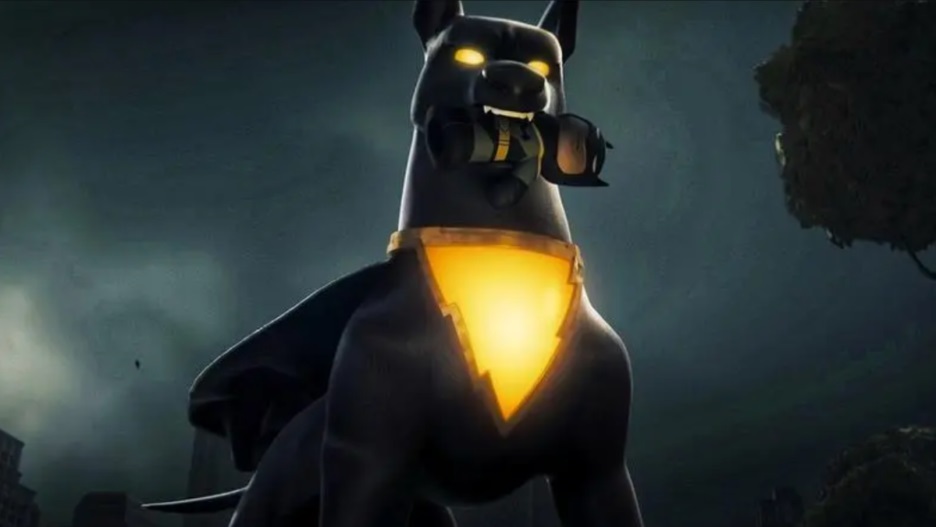 Anubis The Dark Dog
Anubis The Dark Dog
The newest addition to the Black Adam Family of characters, this one comes to us courtesy of Dwayne Johnson himself. Krypto The Super-Dog was created by Black Adam’s co-creator Otto Binder, so it makes sense to reflect back that idea in a way that brings things full circle.
Anubis is introduced as a dark mirror to Krypto in the film DC League of Super-Pets and is a delightfully fun remix that fits in with history. But it’s not the first time a Black Adam-styled super-animal has been created. There was a Captain Black Bunny back in the Fawcett era, and Anubis is a delightful return to that same spirit.
Despite an uncertain cinematic future, as far as the comics go, Black Adam and his family sit at a curious crossroads, bound to the history of the very first superfamilies and now being reflections of the biggest modern ones. It’s a unique space and role in the DC Universe, and regardless of the lukewarm reception the film received, the comics remain a fascinating exploration and mirror of superhero storytelling.
The post The Tragedy of Black Adam’s Family History appeared first on Den of Geek.
* This article was originally published here

Comments
Post a Comment